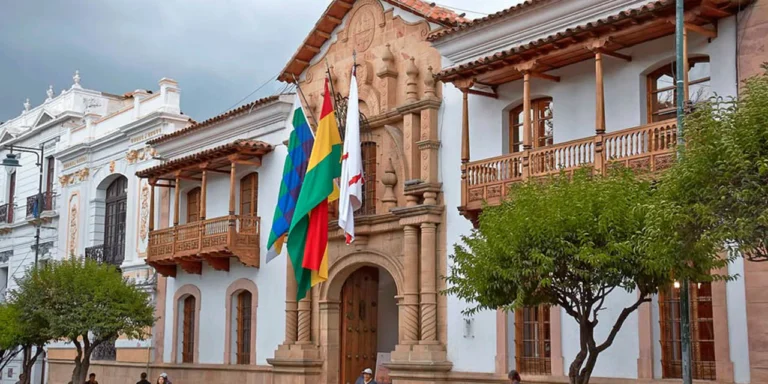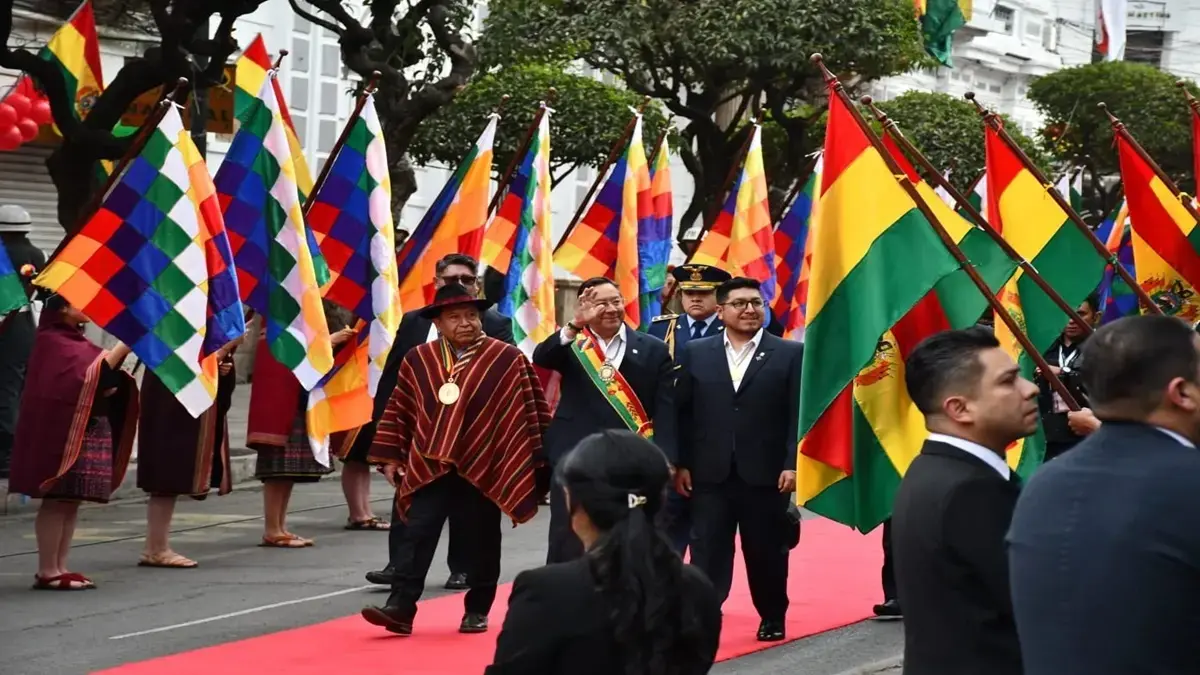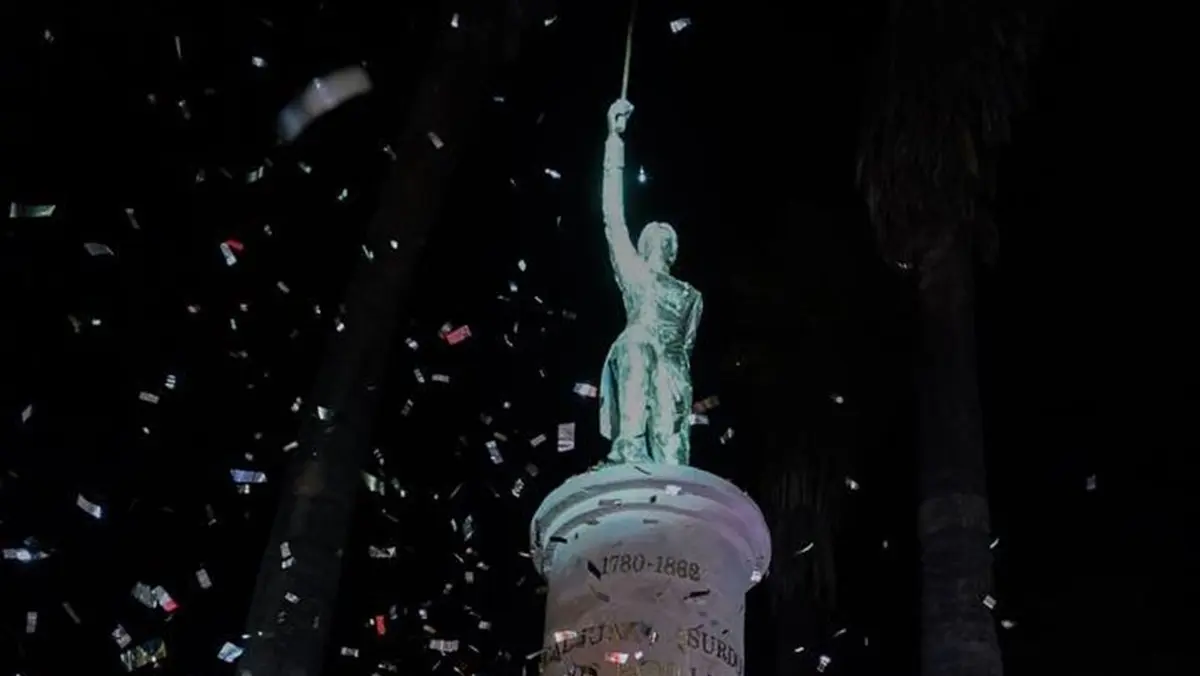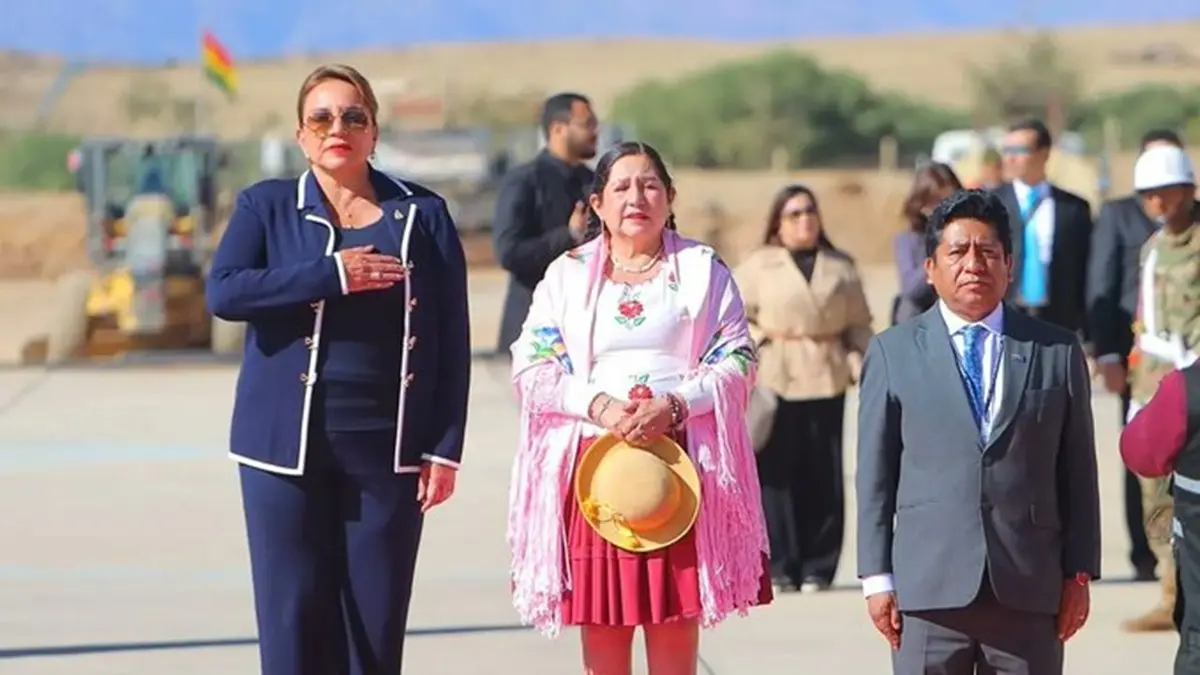Bicentennial of Bolivia: Self-Determination as a Pillar in the Multipolar World

August 4, 2025 Hour: 8:37 pm
The bicentennial of Bolivia is much more than a simple historical celebration; it is the recognition of self-determination and sovereignty as fundamental foundations for a diverse and united nation.
This anniversary marks the formal birth of the Plurinational State of Bolivia, consolidating its identity in a South American continent that has witnessed constant struggles for freedom, justice, and equality.
In this article, we explore Bolivia’s history, its Indigenous and peasant roots, and how these intertwine with today’s political and social realities to build an authentic and sovereign national project.
We will analyze Bolivia’s role in the global context as a key player in the multipolar world, as well as its economic and social model based on the defense of its resources and rights.
History of Bolivia: Roots of Resistance and the Struggle for Self-Determination
Bolivia’s independence, proclaimed in 1825, did not emerge out of nowhere. Its roots are firmly anchored in Indigenous and peasant resistance against Spanish colonial rule.
The rebellions of José Gabriel Condorcanqui (Túpac Amaru II), Tomás Katari, and Túpac Katari were the first cries for freedom and social justice, confronting a rigid colonial structure that exploited and divided.
The weakening of the Spanish Empire after the French invasion in 1808 opened a window for emancipation, which materialized with the formation of governing juntas in 1809 in Upper Peru.
From that moment, Bolivia’s War of Independence began, marked by the courageous participation of military leaders and guerrillas such as Juana Azurduy, Manuel Padilla, and Ignacio Warnes.
The support of figures like Simón Bolívar and José de San Martín was crucial for the victory in the Battle of Ayacucho in 1824. This battle not only secured Peru’s independence but also facilitated Bolivia’s proclamation as a sovereign republic on August 6, 1825.
However, official independence did not guarantee inclusion or full rights for Indigenous peoples, who suffered exclusion and inequality for many years.
It was not until 2006, with the rise of President Evo Morales, that the Plurinational State of Bolivia began to legally recognize the 36 Indigenous nations that make up the country.
The new Political Constitution of the State granted full recognition to Indigenous identity, cultures, and ancestral rights, consolidating self-determination for all Bolivians.
Bolivia and the Multipolar World: A Sovereign and Non-Aligned Foreign Policy
In the international context, Bolivia stands out as an actor committed to a multipolar world, challenging the unipolar order imposed by the United States and its allies. The rise of the BRICS bloc, led by China and Russia, represents a paradigm shift that Bolivia approaches with a sovereign and anti-imperialist foreign policy.
Bolivia has rejected foreign interference, particularly from the European Union and the United States, and has strengthened its regional integration through strategic alliances with progressive Latin American countries.
It is an active member of ALBA-TCP, alongside Venezuela, Cuba, and Nicaragua, and participates in community blocs such as UNASUR and CELAC, promoting cooperation without external influence.
Joining these blocs reflects a commitment to defending national sovereignty and the self-determination of Latin American peoples. Additionally, the country seeks to join MERCOSUR to expand its commercial and political ties in the region.
During Evo Morales’ government, Bolivia regained control over strategic resources by reversing contracts with multinational corporations such as Repsol and Petrobras. It also kept alive the historic demand for sovereign access to the Pacific Ocean, a vital issue for its economic and strategic development.
A key achievement was the nationalization and state control of lithium exploitation, a strategic resource of the 21st century, managed under the direction of the state-owned corporation COMIBOL, avoiding unfavorable conditions imposed by foreign investment.
Economic and Social Sovereignty: Progress and Challenges in Building the Bolivian Model
The active defense of sovereignty over Bolivia’s natural resources has had a significant impact on the national economy. The nationalization of gas and oil allowed the state to increase its share of profits to 82%, compared to the previous 18%.
This increased revenue enabled a more equitable redistribution of wealth and achieved a notable reduction in poverty. According to ECLAC, the Gini coefficient dropped from 0.60 in 2005 to 0.44 in 2019, and extreme poverty fell from 38% to 15%.
At the same time, emblematic social programs emerged, such as the Renta Dignidad, Bono Juancito Pinto, and Bono Juana Azurduy, benefiting millions of Bolivians.
Between 2006 and 2019, Bolivia invested more than 40 billion dollars in infrastructure, health, and education, prioritizing social welfare and equity—aspects historically neglected by decades of foreign domination.
However, challenges remain. The pressure of mining extractivism clashes with the defense of Indigenous rights and prior consultation in ancestral territories. Additionally, the concentration of poverty in rural areas remains a serious problem, with limited access to basic services and complaints of large landholdings (latifundios) hindering true agrarian justice.
On the social front, Bolivia has developed a system with universal free access to education from early childhood to university, investing in infrastructure and teacher training to reduce school dropout rates. In healthcare, the government has strengthened primary care, medicine provision, and hospital infrastructure.
Likewise, universal pensions for the elderly and subsidies for pregnant mothers are distributed, consolidating a social protection network in service of the Bolivian people’s self-determination.
The Bicentennial, a Declaration of Intent for the Future
The Bicentennial of Bolivia is, in essence, a living affirmation that the struggle for sovereignty and self-determination is a dynamic, ever-renewing process. This anniversary not only commemorates the independence proclaimed two centuries ago but also represents a commitment to an inclusive and sovereign future.
Bolivia’s history, marked by ancestral resistance and the consolidation of the Plurinational State, exemplifies how a nation can reclaim its identity and rights, challenging colonial and neocolonial models.
Bolivia reaffirms that the defense of its strategic resources and the strengthening of its institutions are vital to ensuring social justice and cultural diversity.
Moreover, its stance in the international arena in favor of a multipolar world inspires other nations to seek their own paths, based on cooperation, mutual respect, and self-determination.
This bicentennial invites us to remember that independence is not an endpoint but a permanent task. Bolivia teaches us that the future is built through active commitment to sovereignty, unity in diversity, and a vision of solidarity for Latin America and the world. That is the true legacy of its independence and the beacon guiding its present and future.
Author: Silvana Solano
Source: teleSUR





